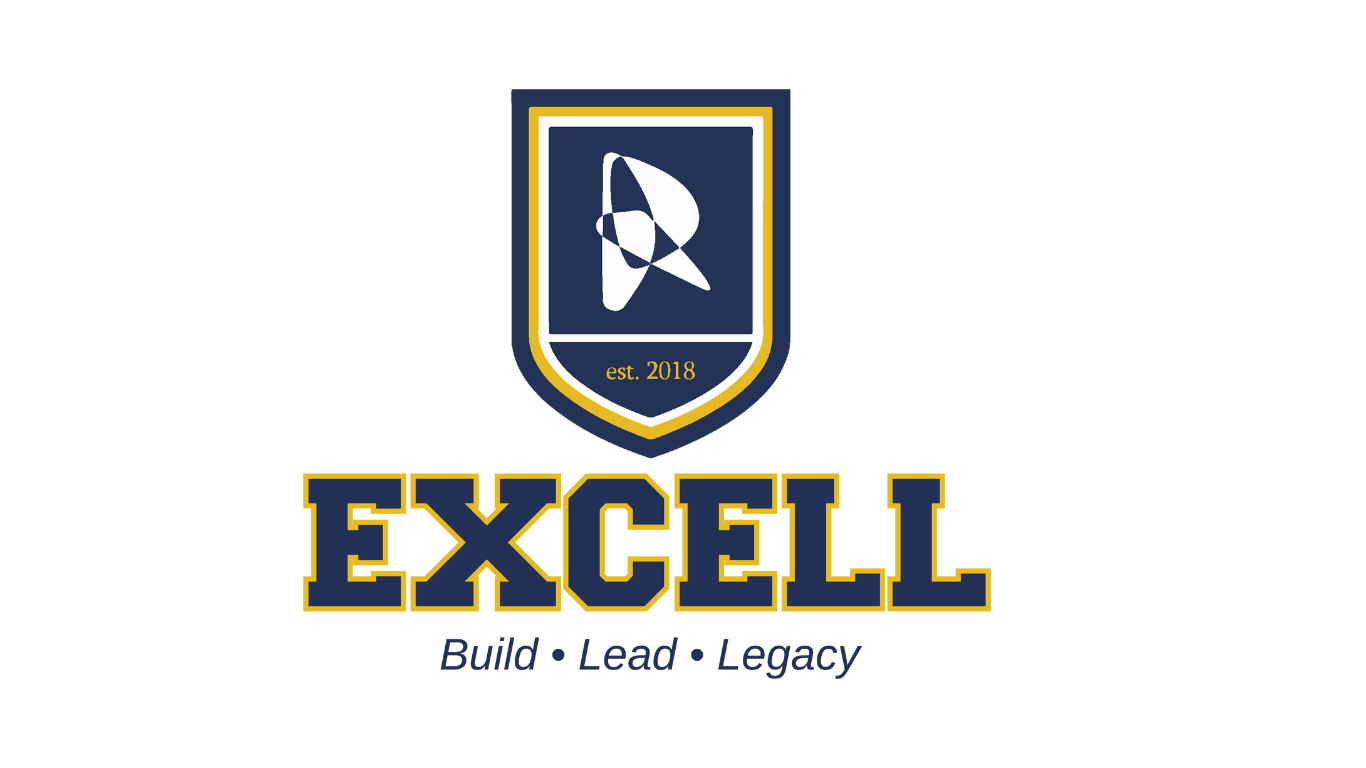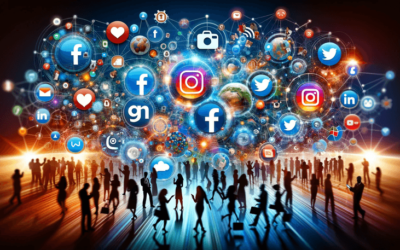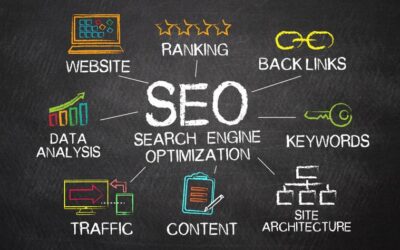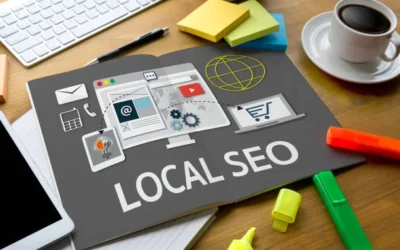Content Marketing: Why It’s Important
In a crowded digital landscape where consumers are constantly bombarded with advertisements, standing out is no small feat. Today, audiences crave more than just a product or service; they want stories, experiences, and value. That’s precisely where content marketing shines. Instead of shouting “buy now,” content marketing builds meaningful connections by educating, entertaining, and inspiring your audience.
If you’ve ever wondered why content marketing is essential, this in-depth guide will break down everything you need to know. From the core benefits and strategies to common questions businesses ask, we’ll explore how content drives sustainable growth and why no modern company can afford to ignore it.
Table of Contents:
- Introduction to Content Marketing
- Why Content Marketing Is Important in Today’s Digital Era
- The Core Benefits of Content Marketing
- 5 Key Questions Answered
- How to Build an Effective Content Marketing Strategy
- Examples of Content Marketing Done Right
- The Future of Content Marketing
- Conclusion & Call to Action
Introduction to Content Marketing
Content marketing is not a passing trend; it’s the backbone of modern digital strategy. At its simplest, it’s the process of creating, publishing, and distributing valuable content to attract and engage a target audience. Unlike traditional advertising that pushes products, content marketing pulls people in naturally by answering their questions, solving problems, and adding value to their lives.
Think of it like this: instead of chasing customers with ads, you position yourself as the go-to expert they can trust. When they’re ready to buy, your brand is already top-of-mind.
Content marketing comes in many forms:
- Written content – Blog posts, articles, eBooks, and guides.
- Visual content – Infographics, videos, reels, and social media graphics.
- Interactive content – Quizzes, polls, and webinars.
- Audio content – Podcasts, interviews, and voice snippets.
What makes content marketing powerful is its flexibility. Whether you’re a small business owner, a startup, or a global corporation, it can be tailored to fit your audience, goals, and budget.
Why Content Marketing Is Important in Today’s Digital Era

Here’s why content marketing is essential right now:
Before making decisions, buyers want to be informed. Content like blog posts, case studies, or explainer videos helps educate them. A business that teaches, guides, and informs earns trust faster than one that advertises.
2. Search Engines Reward Great Content
Google’s mission is to deliver the best answers. Businesses that publish relevant, keyword-optimized, and high-quality content are more likely to appear in search results. If someone Googles why content marketing is essential and lands on your page, you’ve gained a new lead organically.
3. It Supports Every Stage of the Buyer’s Journey
- Awareness stage: Blog posts or infographics introduce potential customers to your brand.
- Consideration stage: Case studies, comparisons, and webinars build credibility.
- Decision stage: Testimonials, product demos, and detailed guides help close the deal.
Running ads is effective, but only as long as you continue to spend. Once your budget runs dry, your visibility disappears. Content, on the other hand, has compounding value. A blog post written today could continue generating traffic for years.
5. It Builds a Competitive Edge
The Core Benefits of Content Marketing
Now that we understand the landscape, let’s dive into the specific benefits of content marketing and why it should be at the center of your strategy.
When you consistently publish expert insights, tutorials, or tips, you position your brand as a leader in your niche. People naturally trust brands that educate them.
2. Increases Organic Traffic and SEO Rankings
By targeting keywords like why content marketing is essential, your content helps you rank in search engines. Each article adds another door through which potential customers can find you.
3. Generates and Nurtures Leads
Content is an entry point into your sales funnel. For instance, a free eBook can capture emails, and follow-up content nurtures those leads until they’re ready to purchase.
4. Builds Long-Term Customer Relationships
Content builds trust. Trust creates loyalty. And loyal customers not only return but also recommend your business to others.
5. Cost-Effective Marketing
Compared to paid ads or traditional media, content is far more affordable. The ROI is higher because content continues to deliver results long after the initial investment has been made.
6. Enhances Social Media Engagement
5 Key Questions Answered
Here are five of the most common questions businesses ask about content marketing, along with detailed answers.
Traditional ads are interruptive, whereas content marketing is more inviting. Ads often push messages to people who may not be interested, but content attracts people actively searching for solutions. This makes content more targeted and cost-efficient.
2. How does content marketing impact SEO?
SEO and content marketing are inseparable. Keywords like why content marketing is essential allow your content to rank for relevant searches. Search engines analyze content quality, engagement, backlinks, and freshness, all of which are enhanced by consistent content marketing.
3. Can small businesses benefit from content marketing?
Absolutely. You don’t need a massive budget to create blogs, videos, or social posts. Even a small business can establish credibility and compete effectively by targeting local SEO keywords and creating niche-specific content.
4. What types of content perform best?
The “best” content depends on your audience. However, blogs, how-to guides, and videos tend to perform universally well. For example, a step-by-step guide might attract search traffic, while a short video may drive engagement on Instagram or TikTok.
5. How long does it take to see results?
How to Build an Effective Content Marketing Strategy
Creating content without a strategy is like setting sail without a map. You may float around aimlessly, but you won’t reach your destination. To fully understand why content marketing is important, businesses must see it as a structured, long-term plan rather than a series of random blog posts or social media updates. Here’s a deeper look at the framework:
- Brand Awareness: If your company is new or entering a competitive market, your goal may be to increase visibility. Example: publishing educational blogs that answer industry-specific questions.
- Lead Generation: If you already have visibility but want more qualified leads, consider using gated content, such as whitepapers or webinars, to capture contact information and generate more qualified leads.
- Conversions and Sales: To drive direct sales, your content should effectively highlight product features, case studies, and customer testimonials.
- Customer Retention: Sometimes, the goal isn’t just acquiring new customers, but also keeping existing ones engaged. Example: creating exclusive newsletters, tutorials, or user guides.
👉 Pro Tip: Use SMART goals (Specific, Measurable, Achievable, Relevant, Time-bound). For example, “Increase organic website traffic by 30% in six months through blog content.”
2. Research Your Audience
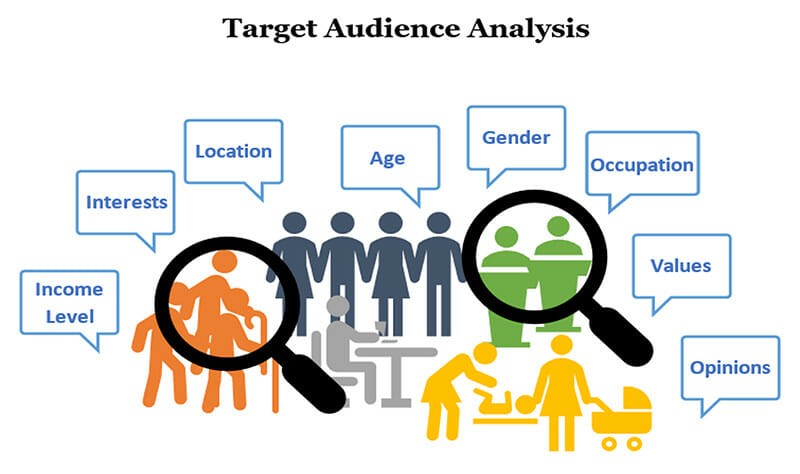
- Create Buyer Personas: These fictional profiles represent your ideal customers. Include details like age, job role, income, pain points, and preferred content types.
- Understand Pain Points: Ask, ‘What problems keep them up at night?‘ If you’re a financial services firm, it may involve managing debt or saving for retirement. Your content should provide solutions.
- Study Behavior: Track where your audience spends time online. Are they active on LinkedIn, YouTube, or Instagram? This determines your content format and distribution.
👉 Pro Tip: Use surveys, social media polls, or tools like Google Analytics and SEMrush to gather insights.
3. Create a Content Plan
Once you know your goals and audience, you need a plan that outlines the type of content to create, when to publish it, and where to share it.
- Topic Clusters: Organize your content around themes. Example: If you’re in fitness, your clusters could be “Nutrition Tips,” “Workout Plans,” and “Mental Health.”
- Formats: Choose a mix of blogs, videos, podcasts, and infographics to keep things engaging.
- Editorial Calendar: Plan at least 1–3 months. This ensures consistency and prevents scrambling for last-minute ideas.
👉 Pro Tip: Use tools like Trello, Asana, or Notion to manage your content calendar and team collaboration.
4. Optimize for SEO
SEO is the backbone of content visibility. Without optimization, even the best content may never be discovered.
- Keyword Research: Identify relevant keywords like why content marketing is essential and naturally integrate them into your titles, headers, and body text.
- On-Page SEO: Use meta descriptions, internal linking, and image alt tags.
- Content Depth: Longer, comprehensive content often performs better in search results.
- User Experience: Ensure your website is mobile-friendly, loads quickly, and features easy navigation.
👉 Pro Tip: Aim for a balance between SEO optimization and readability. Google prioritizes content that genuinely helps users, not just keyword-stuffed articles.
5. Promote Your Content
Publishing content is only half the battle; you need to promote it actively.
- Social Media Marketing: Share across platforms where your audience is most active. Tailor your message for each platform (short posts for Twitter/X, visuals for Instagram, professional insights for LinkedIn).
- Email Marketing: Send newsletters with curated content to subscribers. Email remains one of the highest-ROI channels for content distribution.
- Partnerships & Guest Posts: Collaborate with influencers or guest post on reputable sites to expand your reach.
- Paid Promotion: Utilize paid ads to amplify high-value content, such as eBooks, webinars, or lead magnets.
👉 Pro Tip: Repurpose content. A blog can become a LinkedIn carousel, a YouTube video, or a podcast episode.
6. Analyze Performance
The final and often overlooked step is measuring results. Without data, you won’t know if your strategy is working.
- Track Key Metrics:
- Traffic (page views, sessions, bounce rates)
- Engagement (shares, comments, time on page)
- Lead Generation (form fills, downloads, sign-ups)
- Conversions (sales, revenue generated)
- Utilize tools such as Google Analytics, HubSpot, SEMrush, and social media insights to gain a clear picture of performance.
- Refine Based on Data: If blog posts are performing better than videos, invest more in blogs. If LinkedIn drives more conversions than Instagram, shift resources accordingly.
Examples of Content Marketing Done Right
Nothing explains why content marketing is essential better than real-world examples. These companies didn’t just “do content”; they built entire brand empires around it. Let’s take a closer look.
1. HubSpot – The Inbound Marketing Pioneer

HubSpot became the gold standard for inbound marketing by investing heavily in content long before it became a mainstream approach. Instead of relying on cold calls and traditional ads, they created blogs, templates, guides, free tools, and eBooks that solved marketers’ most significant problems.
How They Did It:
- Blogging at Scale: HubSpot publishes multiple in-depth blog posts every week, covering topics ranging from SEO to sales automation.
- Free Tools: Their free CRM and free website grader pulled in users who later upgraded to paid solutions.
- Educational Content: HubSpot Academy offers free certification courses, establishing itself as an authority in marketing education.
Why It Worked:
HubSpot positioned itself not just as a software provider but as a trusted teacher. When people searched for solutions like “how to generate leads” or “why content marketing is important,” HubSpot’s content often appeared first.
Lesson for Businesses:
You don’t have to sell a product directly through content. If you provide enough value upfront, your audience will come to you when they’re ready to make a purchase.
2. Red Bull – From Energy Drink to Lifestyle Brand
Red Bull transformed itself from an energy drink into a media powerhouse by creating adrenaline-fueled content. Instead of just talking about their product, they sold a lifestyle of excitement, adventure, and extreme sports.
How They Did It:
- Event Marketing: Red Bull created and sponsored extreme sports events, such as the Red Bull Air Race and Red Bull Rampage.
- Video Storytelling: Their YouTube channel features jaw-dropping stunts, documentaries, and athlete spotlights.
- Branded Content Hub: Red Bull Media House produces a range of content, including movies, magazines, and digital media, across various platforms.
Why It Worked:
Red Bull’s target audience, young, adventurous, and thrill-seeking consumers, didn’t want another ad about a drink. They wanted to feel part of a community. By associating the brand with exciting experiences, Red Bull made itself unforgettable.
Lesson for Businesses:
Your product doesn’t have to be the hero. Instead, build stories around the lifestyle or values your audience connects with. If Red Bull can make people associate an energy drink with skydiving, your business can also tie itself to powerful emotions.
3. Glossier – Community-Driven Storytelling
Glossier, a beauty and skincare company, built a billion-dollar brand by letting its customers drive the content strategy. Instead of telling people what beauty should be, they listened to their audience and built content around their voices.
How They Did It:
- User-Generated Content (UGC): Customers shared their beauty routines on Instagram, and Glossier amplified them.
- Engagement First: Their social channels weren’t one-way broadcasts but conversations. They asked followers what products they wanted next.
- Relatable Storytelling: Instead of polished, celebrity-driven campaigns, they showcased real customers, making beauty feel accessible.
Why It Worked:
Glossier tapped into authenticity. In an industry dominated by glossy, unattainable standards, they flipped the script by embracing imperfection and inclusivity. Content became the bridge between their community and their products.
Lesson for Businesses:
Great content doesn’t always need to come from you. Sometimes, the most powerful marketing comes from amplifying the voices of your customers.
The Takeaway
These examples, including HubSpot, Red Bull, and Glossier, prove that content marketing isn’t limited to one style or industry.
- HubSpot shows the power of educational resources.
- Red Bull showcases the impact of emotionally driven and lifestyle-focused content.
- Glossier shows the strength of community and authenticity.
Each one demonstrates a different angle of why content marketing is essential: it builds trust, drives engagement, and creates an emotional bond that traditional advertising can’t match.
👉 Whether you’re in B2B software, consumer goods, or retail, the lesson is clear: if you invest in the correct type of content for your audience, you’re not just selling, you’re creating a movement around your brand.
The Future of Content Marketing
Content marketing isn’t slowing down; it’s evolving. Here’s where it’s headed:
- AI-driven personalization will deliver tailored experiences to each user.
- Video dominance will continue to grow, with both short-form and long-form formats experiencing significant growth.
- Interactive content, such as polls, quizzes, and AR/VR experiences, will engage audiences on a deeper level.
- Authenticity will matter more than ever, as consumers crave transparency and real stories.
Conclusion & Call to Action
So, why is content marketing important? Because it builds trust, improves visibility, fuels SEO, and creates long-term customer relationships that traditional ads can’t match. It’s not just a marketing tactic; it’s a business growth engine.
At Excell, we specialize in crafting powerful content strategies that attract, engage, and convert. Whether you’re a small business looking to scale or a larger company aiming to dominate your niche, we can help.

👉 Don’t wait another day to transform your digital presence. Contact us today and Book your free discovery call to get done for your services.
Contact us:
6420 Richmond Ave., Ste 470
Houston, TX, USA
Phone: +1 832-850-4292
Email: info@excellofficial.com
